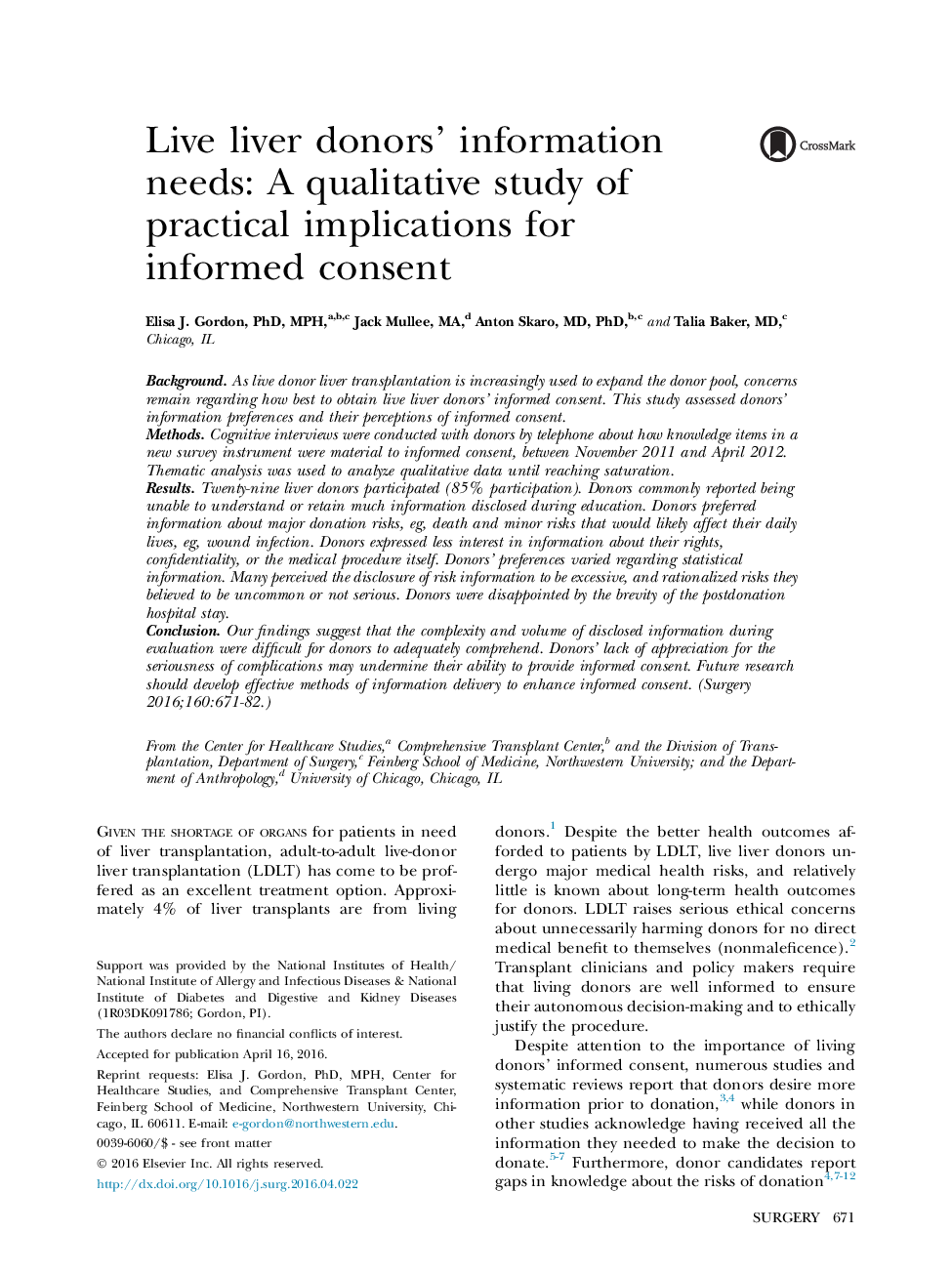| Article ID | Journal | Published Year | Pages | File Type |
|---|---|---|---|---|
| 6254880 | Surgery | 2016 | 12 Pages |
BackgroundAs live donor liver transplantation is increasingly used to expand the donor pool, concerns remain regarding how best to obtain live liver donors' informed consent. This study assessed donors' information preferences and their perceptions of informed consent.MethodsCognitive interviews were conducted with donors by telephone about how knowledge items in a new survey instrument were material to informed consent, between November 2011 and April 2012. Thematic analysis was used to analyze qualitative data until reaching saturation.ResultsTwenty-nine liver donors participated (85% participation). Donors commonly reported being unable to understand or retain much information disclosed during education. Donors preferred information about major donation risks, eg, death and minor risks that would likely affect their daily lives, eg, wound infection. Donors expressed less interest in information about their rights, confidentiality, or the medical procedure itself. Donors' preferences varied regarding statistical information. Many perceived the disclosure of risk information to be excessive, and rationalized risks they believed to be uncommon or not serious. Donors were disappointed by the brevity of the postdonation hospital stay.ConclusionOur findings suggest that the complexity and volume of disclosed information during evaluation were difficult for donors to adequately comprehend. Donors' lack of appreciation for the seriousness of complications may undermine their ability to provide informed consent. Future research should develop effective methods of information delivery to enhance informed consent.
